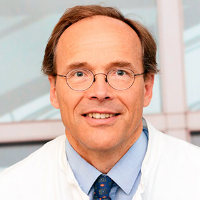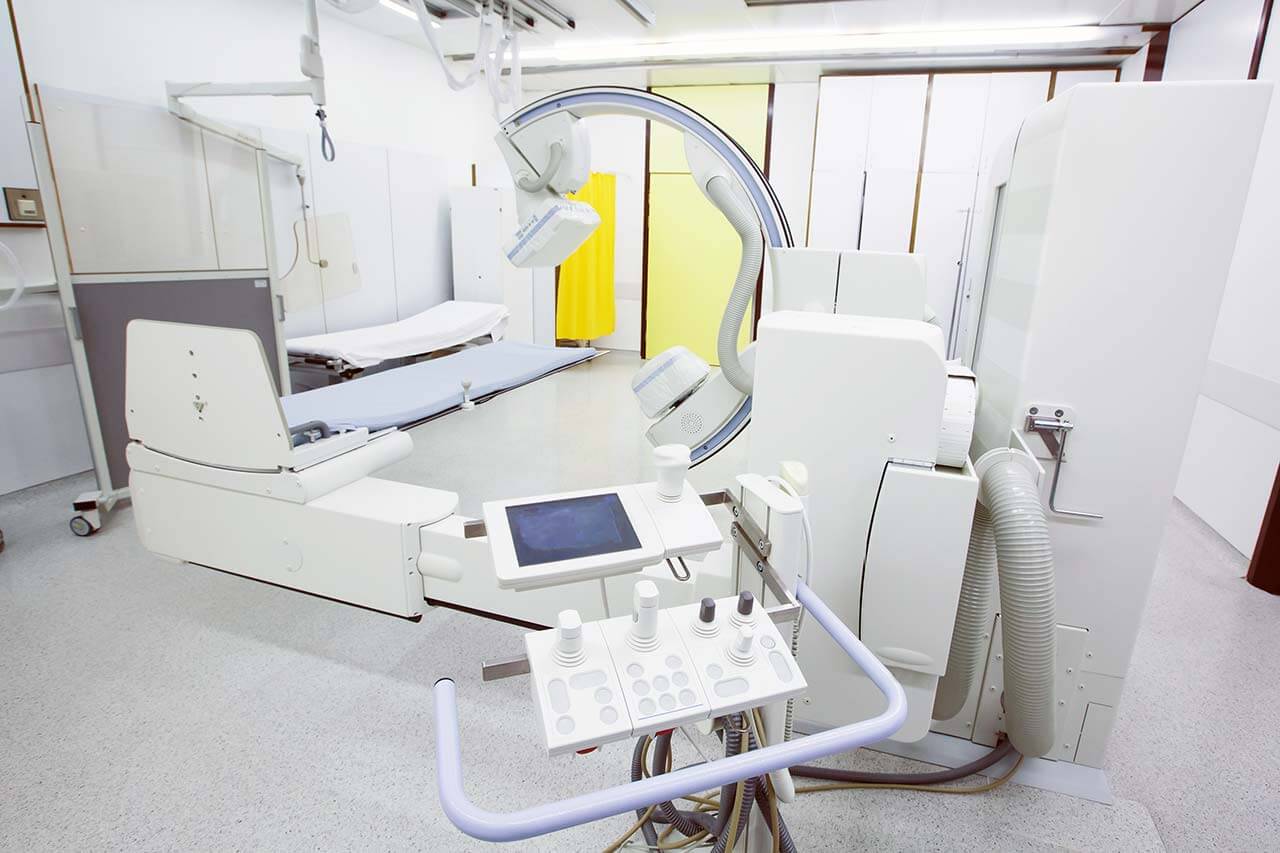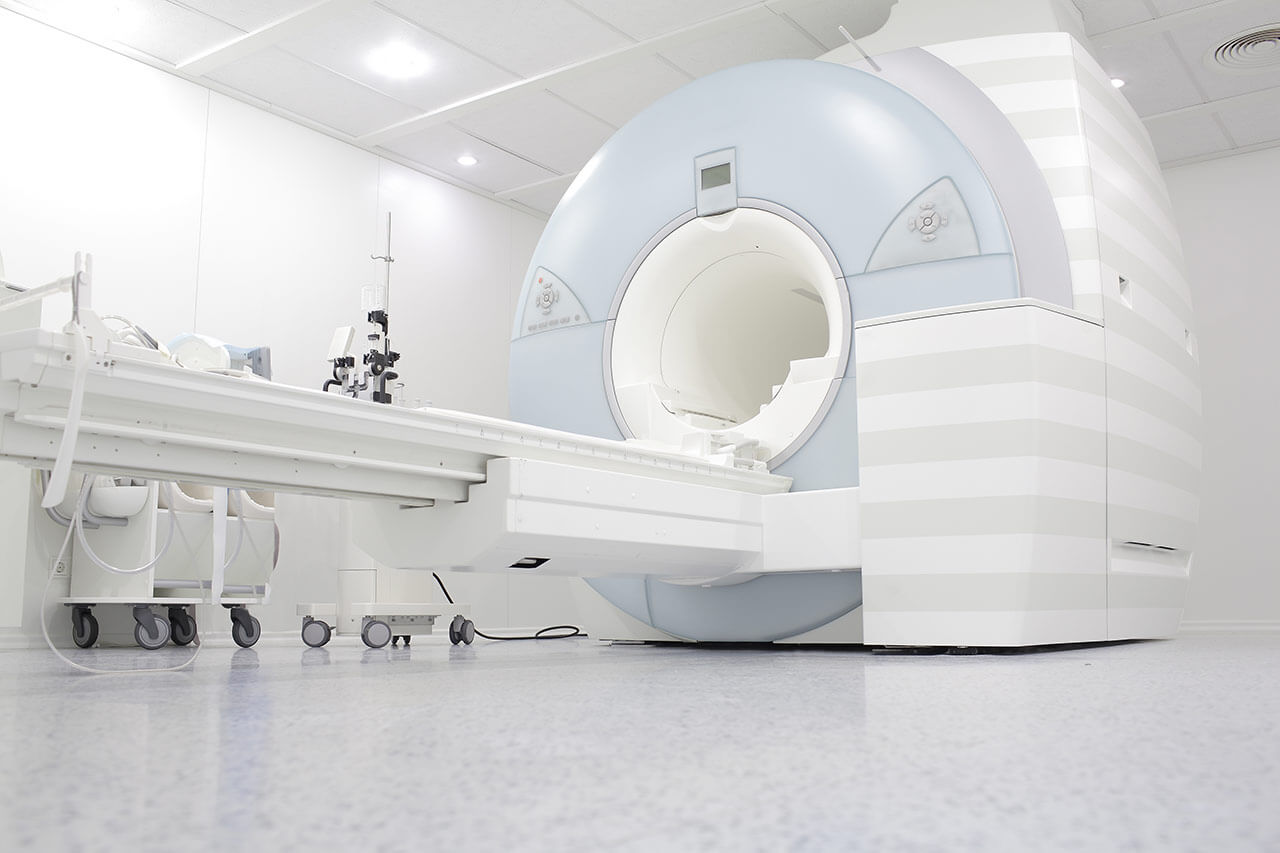
The program includes:
- Initial presentation in the clinic
- clinical history taking
- review of medical records
- physical examination
- laboratory tests:
- complete blood count
- general urine analysis
- biochemical blood test
- inflammation markers (CRP, ESR)
- blood coagulation analysis (aPTT, PT, INR)
- tumor markers (CEA, CA19-9, CA125, НЕ4)
- gynecological examination:
- colposcopy
- vaginal swab
- biopsy with histological study (if clinically indicated, additional cost is 2500 €)
- transvaginal ultrasound
- ultrasound of abdomen and pelvic organs
- CT/MRI of the abdomen and pelvic organs (if clinically indicated, additional cost is 650/1200 €)
- nursing services
- consultation of related specialists
- treatment by chief physician and all leading experts
- explanation of individual treatment plan
(the cost of medicines is not included)
Required documents
- Medical records
- MRI/CT scan (not older than 3 months)
- Biopsy results (if available)
Service
You may also book:
 BookingHealth Price from:
BookingHealth Price from:
About the department
The Department of Adult and Pediatric Gynecology, Mammology, Obstetrics and Reproductive Medicine at the Hannover Medical School offers accurate diagnostics and effective treatment of all diseases of the female genital organs and breast, as well as provides top-class obstetric services. The department specializes in the treatment of breast cancer, female genital cancers, dysplasia, endometriosis, urinary incontinence, pelvic organ prolapse, as well as the treatment of hormone imbalance of gynecological origin. The department’s therapeutic options include conservative methods, surgical treatment using the very latest robot-assisted systems (da Vinci robot) and minimally invasive techniques, psychological care and traditional Chinese medicine. In addition, the department provides the services of experienced reproductologists, whose task is to detect the causes of infertility and carry out the therapeutic manipulations necessary for conceiving a child. The focus of the department’s doctors and nursing staff is on the patient with her individual needs and wishes. Medical care meets strict international standards, due to which high treatment success rates are achieved here.
The department is headed by Prof. Dr. med. Peter Hillemanns. According to the prestigious medical journal Focus, the doctor ranks among the best specialists in the fields of his competence!
A special role in the work of the department's gynecologists is given to the treatment of ovarian, uterine and cervical cancers. The department holds weekly tumor boards, which are attended by all highly qualified doctors and specialists from related fields, including radiologists, radiation therapists, geneticists, psychologists, etc. The purpose of the boards is a detailed consideration of each clinical case and the development of optimal treatment tactics, adapted to the particular clinical case. In most cases, the basis of treatment is surgical resection of the tumor, which, depending on the type and stage of cancer, can be supplemented with chemotherapy, radiation therapy, hormone therapy, immunotherapy and other types of treatment. All therapeutic measures meet the requirements of the specialized groups of the German Cancer Society and the German Society of Gynecology and Obstetrics.
The department's medical team prefers sparing surgeries, and therefore almost all interventions are performed using laparoscopic or robot-assisted surgical techniques. It is worth noting that the department's gynecologists have been performing operations using the state-of-art da Vinci Xi surgical system since 2018. At the moment, the medical facility employs four highly qualified doctors specializing in robotic surgery. In most cases, robot-assisted surgery is used to perform hysterectomy for cervical cancer, surgery for endometrial cancer, and removal of lymph nodes in women with gynecologic cancers. In addition, such operations are performed for benign gynecologic diseases, for example, for ovarian cysts, uterine myomas, for the elimination of fallopian tube obstruction. Robot-assisted interventions have a number of advantages over classical open surgery, since they significantly reduce the risk of postoperative complications, severe bleeding and thrombosis. The da Vinci surgical system provides accurate imaging of the surgical field and eliminates human factors, including fatigue and trembling hands. Patients recover faster after this operation, and the pain syndrome is less severe in comparison with classical surgery.
Breast cancer is one of the most common pathologies in women. The department employs a team of highly professional mammologists for the treatment of this disease. This field is certified by the German Cancer Society, the German Society of Senology and the DIN EN ISO 9001 quality certificate. All certificates testify to the outstanding quality of medical services. Breast cancer treatment methods include breast-conserving surgery, total breast removal, and breast removal followed by reconstruction (immediate or delayed). The department's doctors strive to preserve the patient's breast and remove only the tumor, however, at high risks to the patient's health, radical resections are performed. Surgery is often complemented by radiation therapy. Regular follow-up monitoring is also a prerequisite for a successful outcome.
The main task of the department's obstetricians is the comprehensive management of pregnancy, the organization of safe childbirth and high quality postpartum care. To monitor the course of pregnancy, the department offers all modern examinations in the field of perinatal medicine. The birth takes place in well-equipped delivery rooms, with the participation of an experienced team of obstetricians and nurses. If C-section is required, the procedure is performed according to the sparing Misgav Ladach method. The department uses various methods of pain relief during childbirth, for example, relaxation baths, aromatherapy, homeopathy, acupuncture, pain medications, epidural anesthesia, etc.
The department's therapeutic offer is complemented by the diagnostics and treatment of infertility. During the first consultation, the attending physician holds a conversation with the patient, studies her medical history and the duration of the absence of pregnancy with regular attempts to conceive a child. Then the necessary set of diagnostic tests to determine the causes of infertility is prescribed to a woman. The impossibility of conceiving a child is quite often caused by gynecologic pathology: fallopian tube obstruction, uterine myoma, pathological changes in the endometrium, hormonal disorders, etc. In such cases, the necessary treatment is provided. In more complex cases, assisted reproductive technologies are used. These may be in vitro fertilization (IVF), intracytoplasmic sperm injection (ICSI), microsurgical epididymal sperm aspiration (MESA), testicular sperm extraction (TESE).
The department also admits children and adolescents between the ages of 0 and 18 with congenital or acquired malformations of the female reproductive system, premature puberty or delayed puberty, menstrual irregularities or amenorrhea in adulthood, polycystic ovary syndrome and other pathologies. The first-line treatment is usually drug therapy. If congenital malformations are detected, surgical repair is often required. The optimal treatment tactics are determined by highly specialized gynecologists who have additional qualifications in pediatric gynecology.
The department's key clinical focuses include:
- Gynecology
- Diagnostics and treatment of female genital cancers (surgical treatment and drug therapy)
- Ovarian cancer
- Uterine cancer
- Cervical cancer
- Diagnostics and treatment of cervical dysplasia
- Diagnostics and treatment of urogynecologic problems
- Pelvic organ prolapse
- Urinary incontinence
- Diagnostics and treatment of endometriosis
- Diagnostics and treatment of gynecologic endocrine disorders
- Diagnostics and treatment of gynecologic problems in girls
- Premature/delayed puberty
- Menstrual irregularities
- Menstrual irregularities after chemotherapy, radiation therapy
- Excessive body hair growth, acne
- Polycystic ovary syndrome
- Malformations of the internal and external reproductive organs
- Genetic developmental disorders (for example, Ullrich-Turner syndrome, Swyer syndrome)
- Breast malformations
- Gynecologic surgery
- Laparoscopic surgery
- Open surgery
- Robot-assisted interventions (state-of-the-art da Vinci Xi surgical system)
- Reconstructive microsurgery
- Diagnostics and treatment of female genital cancers (surgical treatment and drug therapy)
- Mammalogy
- Conservative treatment of breast cancer
- Chemotherapy
- Radiation therapy
- Hormone therapy
- Immunotherapy
- Surgical treatment of breast cancer
- Organ-conserving breast surgery
- Oncoplastic breast reconstruction (immediate and delayed reconstruction using the patient's own tissues or implants, reconstruction using expanders)
- Closure of defects using local skin shifting technique
- Sentinel lymph node removal
- Plastic surgery: breast augmentation, breast reduction, breast lift, correction of congenital breast defects
- Conservative treatment of breast cancer
- Obstetrics
- Prenatal diagnostics
- Childbirth (natural childbirth, C-section)
- Bonding to strengthen the bond between mother, father and child
- Pain relief during childbirth (relaxation baths, aromatherapy, acupuncture, homeopathy, epidural anesthesia and other methods)
- Reproductive medicine
- Treatment of gynecologic pathologies that prevent the conception of a child (for example, fallopian tube obstruction, endometriosis, uterine fibroids, etc.)
- Artificial insemination
- In vitro fertilization (IVF)
- Intracytoplasmic sperm injection (ICSI)
- Microsurgical epididymal sperm aspiration (MESA)
- Testicular sperm extraction (TESE)
- Other therapeutic options
Curriculum vitae
Higher Education
- 1982 - 1985 Study of Human Medicine, Albert Ludwig University of Freiburg.
- 1985 - 1986 Study of Human Medicine at the University of Vienna, Austria.
- 1987 - 1988 Study of Human Medicine at Ludwig Maximilian University of Munich.
- 1988 Admission to medical practice.
- 1989 Educational Commission For Foreign Medical Graduates (ECFMG).
- 1990 Doctoral thesis defense, Department of Molecular Biology and Electron Microscopy, Institute of Pathology at the University of Vienna.
Professional Career, Advanced Training and Specialization
- 1988 - 1989 Main military service as Captain of the Medical Service (Bad Reichenhall).
- 1989 - 1989 Assistant Physician, Institute of Pathology at Ludwig Maximilian University of Munich.
- 1990 - 1991 Research Internship of the German Academic Exchange Service at the Department of Obstetrics and Gynecology, Columbia University, New York, USA.
- 1992 Department of Gynecology and Obstetrics, Grosshadern Hospital at Ludwig Maximilian University of Munich.
- 1994 - 1996 Research Internship in the Department of Obstetrics and Gynecology, Columbia University, New York, USA.
- 1998 Board certification in Gynecology and Obstetrics.
- 1998 Head of the Consultation on Dysplasia, Specialist in Laser and Radiation Protection, and Representative of the Commission for Medicinal Products in Gynecology.
- 1999 Clinical Senior Physician, Department of Gynecology and Obstetrics, Grosshadern Hospital at the Ludwig Maximilian University of Munich.
- 2001 Head of the Section of Gynecologic Oncology in the Department of Gynecology and Obstetrics, as well as the Head of the Gynecologic Oncology Research Laboratory, Grosshadern Hospital, Ludwig Maximilian University of Munich.
- 2001 Habilitation and Venia Legendi. Subject: "New approaches in the diagnostics and therapy of intraepithelial neoplasia of the lower genital tract".
- 2001 Optional advanced training in Surgical Gynecology.
- 2002 Head of the Project Team "Uterine Malignancy", Cancer Center Munich.
- 2002 Optional advanced training in Special Obstetrics and Perinatal Medicine.
- 2003 Certificate in Gynecologic Cytodiagnostics and certificate in Thin-Layer Cytology of the German Society of Cytology.
- 07.2004 Acting Head of the Department of Gynecology (03.2005 invitation to the position of W3 Professor) and Head of the Interdisciplinary Breast Center Jena, University Hospital Jena.
- 11.2005 Head of the Department of Adult and Pediatric Gynecology, Mammology, Obstetrics, Reproductive Medicine at the Hannover Medical School.
- 2010 Head of the Training Center of the European Board and College of Obstetrics and Gynaecology (EBCOG), Hannover.
- 2012 Coordinator for the Development of S3 Recommendations "Cervical Cancer Prevention" within the framework of the Cancer Program of AWMF, DKG and DKH.
- 2012 Deputy Chairman of the Research Group on Colposcopy.
- 2016 - 2018 President of the North German Society of Gynecology And Obstetrics.
- 2019 Director of the Comprehensive Cancer Center Hannover, Claudia von Schilling Foundation for Breast Cancer Research, Deputy Chairman of the Comprehensive Cancer Center Lower Saxony (Hannover Medical School (MHH) and University of Goettingen).
Memberships in Professional Societies
- Working Group on Gynecologic Oncology.
- Working Group on Cervical Pathology and Colposcopy.
- Professional Association of Gynecologists.
- German Society for Gynecology and Obstetrics.
- German Society of Senology.
- German Continence Society.
- German Cancer Society.
- German Society for Laser Medicine.
- German Society of Cytology.
- Lower Saxony Cancer Society.
- Zervita Project Team of the German Cancer Society.
- Research Group on Colposcopy.
- European Society of Gynaecological Oncology.
Photo of the doctor: (c) Medizinische Hochschule Hannover (MHH)
About hospital
The Hannover Medical School has the status of a leading German medical facility. The advanced medical technologies, highly qualified specialists, as well as productive research activities form a solid basis for top-class medical service of the world standard. The hospital is proud of its outstanding achievements in the treatment of cancer, diseases of the lung, heart, kidney, liver and metabolic disorders, as well as surgical diseases.
The medical facility diagnoses and treats more than 63,000 inpatients and about 470,000 outpatients annally. These indicators are growing steadily, which indicates the reputability and prestige of the hospital in the European medical arena.
For decades, the hospital has been a pioneer in transplantation medicine and is one of the leading centers of this specialization in the world. It performs about 400 transplantations of solid organs annually. Also, the hospital has performed over 130 bone marrow transplantations. In addition, the hospital ranks among the world leaders in cochlear implantation for the treatment of hearing loss.
Much attention is paid to interdisciplinary cooperation. Since 2016, the hospital has the largest certified Cancer Center in the Federal State of Lower Saxony, which provides comprehensive, multidisciplinary medical care in accordance with the standardized protocols of cancer societies.
The specialists of the hospital offer patients not only modern treatment of the highest quality, but also attentive care, sympathetic attitude to the patient's problems and understanding of his individual needs. Thus, the patient can be sure that his health is in the safe hands of highly qualified doctors.
Photo: (c) depositphotos
Accommodation in hospital
Patients rooms
The patients of the Hannover Medical School live in comfortable and cozy rooms. Each patent room has an ensuite bathroom with shower and toilet. A standard patient room includes an automatically adjustable bed with an orthopedic mattress, a bedside table, a wardrobe, a TV and a telephone. You can use TV, telephone and Internet using a special chip card, which can be purchased at self-service terminals or ordered at the service counter. The hospital allows the patients to use mobile phones, with the exception of intensive care units, some departments and diagnostic rooms.
If desired, the patient can stay in an enhanced-comfort room. Such rooms are distinguished by a more sophisticated design, and are additionally equipped with upholstered furniture, a safe for storing valuables and a mini fridge.
Meals and Menus
The patient and the accompanying person are offered delicious and balanced three meals a day. Breakfast and dinner are served buffet style and lunch can be chosen from three set menus. All dishes are prepared by professional chefs using the freshest ingredients available in the region.
If you are on a specific diet for some reason, you will be offered an individual menu. Please inform the medical staff about your dietary preferences prior to the treatment.
Further details
Standard rooms include:
Religion
There is a chapel on the territory of the hospital, where Christian and Catholic services are regularly held. The hospital provides a prayer room for followers of Islam, which is open for visits 24 hours a day.
Religious services can also be provided upon request.
Accompanying person
During an inpatient program, an accompanying person can stay with you in the patient room or in a hotel of your choice.
Hotel
During an outpatient program, you can stay in a hotel of your choice. The managers will help you choose the most suitable options.




